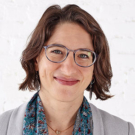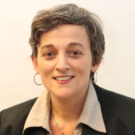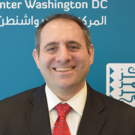Speakers

Dima Khalidi
Executive Director
Palestine Legal

Kenneth Roth
Former Executive Director
Human Rights Watch

Fida Adely
Associate Professor and Director, Center for Contemporary Arab Studies
Georgetown University
Moderator
About the Webinar
College campuses continue to be one of the most contentious spaces when it comes to politics around Palestine and the escalation of efforts to repress Palestine activism and scholarship. Interest groups have sought in recent years to press university administrators to crack down on students and faculty who are active on the issue of Palestine, and have often accused them of antisemitism as a means to curtail their work. Meanwhile, government officials and courts at both the state and federal level have taken additional steps that could threaten academic freedom on Palestine.
Arab Center Washington DC is convening a panel to explore the latest threats and trends in academic freedom on Palestine, just as a new college semester is set to begin. Panelists will address how threats to academic freedom develop, will discuss the latest tactics and responses, and will explore how this dynamic is likely to evolve in years to come.
Event Summary
Dima Khalidi provided a broad overview of threats to and attacks on academics and students who are active on Palestine and other social justice issues on college campuses. Khalidi also provided broader context for these threats, arguing that college campuses are where activism on Palestine is having its biggest impact, and that they have also become the primary focal point of Zionist backlash, moving against both faculty and students who speak out on this issue and putting pressure on universities to suppress activism and discourse around Palestine.
Fida Adely focused on her personal experiences over her twenty-year-long academic career, discussing two main issues. First, Adely spoke about the role that both censorship and self-censorship play in an academic’s life around Palestine, saying that both can be difficult to navigate and that threats of censorship can reinforce a sense fear around speaking about Palestine. Adely also touched on interference by external institutions into academic life, regardless of the policies of university administrations themselves.
Kenneth Roth spoke about his own experience with the suppression of Palestinian activism when he was initially denied a senior fellowship at Harvard University because of his criticism of Israel before a storm of media coverage forced the university to reverse its decision. Roth also pointed to three factors that he argued are contributing to censorship on this issue: the prominence of cancel culture, the precariousness of the current moment for supporters of Israel due to increasing awareness of the severity of the Israeli government’s oppression of Palestinians, and the increasing willingness to throw the charge of anti-Semitism at critics of the Israeli government.
Featured image credit: Flickr/Ted Swedenburg

